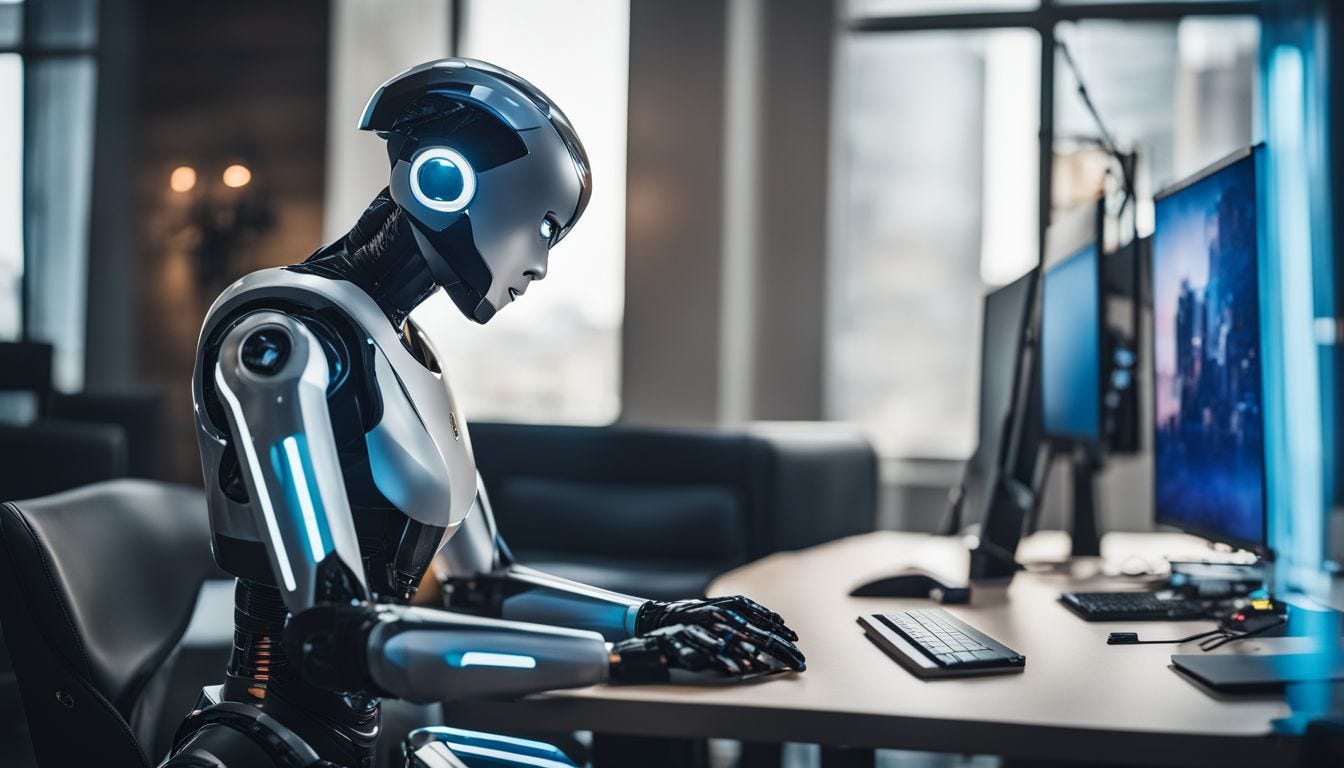Introduction
Artificial Intelligence (AI) is no longer a distant concept found only in science fiction. Over the past decade, AI has made significant strides, embedding itself into various aspects of our daily lives. From virtual assistants like Siri and Alexa to AI-driven algorithms that recommend your next favorite show on Netflix, the impact of AI is undeniable. This article explores how AI is transforming everyday life, the industries it’s revolutionizing, and what the future might hold.
The Ubiquity of AI in Daily Activities
AI has become a seamless part of our routines, often without us even realizing it. Here are a few ways AI is already integrated into daily activities:
- Virtual Assistants
- Virtual assistants such as Siri, Alexa, and Google Assistant are prime examples of AI in action. These assistants use natural language processing (NLP) to understand and respond to user commands, making tasks like setting reminders, sending messages, or controlling smart home devices effortless.
- Personalized Content Recommendations
- Platforms like Netflix, YouTube, and Spotify utilize AI algorithms to analyze user behavior and preferences. These algorithms suggest movies, videos, and songs tailored to individual tastes, enhancing the user experience and keeping people engaged.
- Smart Home Devices
- AI-powered devices like smart thermostats, lights, and security systems offer convenience and energy efficiency. For example, smart thermostats learn your schedule and adjust temperatures accordingly, while AI-driven security cameras can distinguish between humans, animals, and inanimate objects, reducing false alarms.
- Healthcare Applications
- AI is also making waves in healthcare, with applications ranging from AI-driven diagnostics to personalized medicine. Wearable devices equipped with AI can monitor vital signs and alert users to potential health issues before they become critical.
AI’s Impact on Major Industries
Beyond personal use, AI is revolutionizing several key industries, driving innovation and efficiency to new heights:
- Healthcare
- AI’s role in healthcare extends beyond consumer wearables. Machine learning algorithms are being used to analyze medical images, predict patient outcomes, and even assist in surgery. AI is also at the forefront of drug discovery, significantly reducing the time and cost associated with bringing new treatments to market.
- Finance
- In the financial sector, AI is used for fraud detection, risk management, and personalized financial advice. Robo-advisors, which use AI to manage investment portfolios, have democratized access to financial planning services, making them available to a broader audience.
- Retail
- Retailers are leveraging AI for everything from inventory management to personalized shopping experiences. AI-driven chatbots provide customer service, while machine learning algorithms analyze consumer data to predict trends and optimize pricing strategies.
- Transportation
- AI is at the heart of the autonomous vehicle revolution. Companies like Tesla and Waymo are using AI to develop self-driving cars, which promise to reduce traffic accidents and improve transportation efficiency.
Challenges and Ethical Considerations
While AI offers immense potential, it also presents significant challenges and ethical considerations:
- Data Privacy
- AI systems rely on vast amounts of data to function effectively. This raises concerns about data privacy and the potential misuse of personal information. Ensuring that AI systems are transparent and that users have control over their data is crucial.
- Bias in AI
- AI systems can inadvertently perpetuate or even exacerbate existing biases if they are trained on biased data. This is particularly concerning in areas like hiring, lending, and law enforcement. Addressing bias in AI requires careful consideration of the data used and the development of fair algorithms.
- Job Displacement
- As AI automates more tasks, there is a growing concern about job displacement. While AI will create new jobs, particularly in tech fields, it may also render certain roles obsolete. Preparing the workforce for this transition through education and training is essential.
The Future of AI
The future of AI is bright, with endless possibilities on the horizon. Emerging technologies like quantum computing and advances in neural networks promise to push the boundaries of what AI can achieve. In the coming years, we can expect AI to become even more integrated into our lives, with applications we can only begin to imagine.
Conclusion
AI is not just a buzzword; it’s a transformative force reshaping our world. From enhancing our daily routines to revolutionizing industries, AI is poised to be a defining technology of the 21st century. As we continue to develop and refine AI, it’s crucial to consider the ethical implications and ensure that this powerful tool is used to benefit society as a whole.

